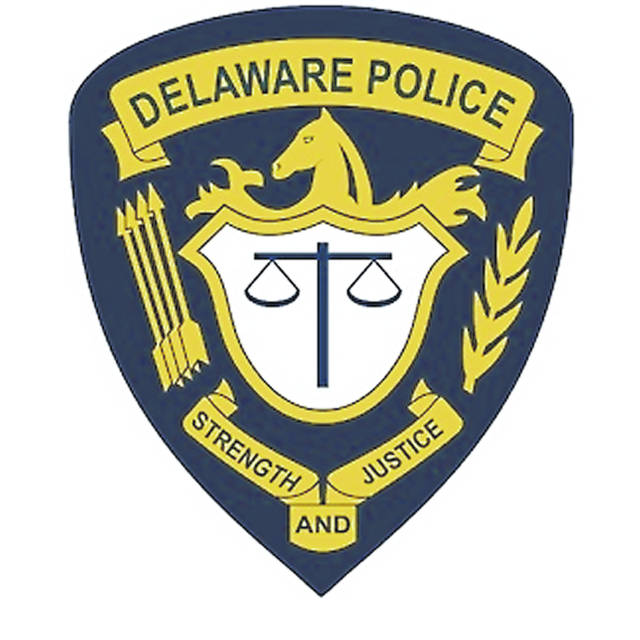
The City of Delaware Police Department held a virtual training session Tuesday on implicit biases and invited the community to take part in a discussion with guest speaker Darryl Rivers.
Police Chief Bruce Pijanowski said the training with Rivers, a former police officer and founder of the L.E.A.D. Company, covered implicit biases. He added the trainings came as the result of discussions that were started last year after the death of George Floyd.
“It’s our job to be the best police department we can be for the Delaware community,” Pijanowski said, adding that during the discussions held in 2020, the Delaware African American Heritage Council asked if the police would undergo bias training. He agreed to having the department take part in such training.
“We are a police department that seeks out training,” Pijanowski said. “We think training is foundational to good police officers, ethical policing, and safe policing. We had no issues saying we’d conduct implicit bias training. I’m really thankful that we have this ability to share our learning experience with you. Together, we are a community. Together, we can make a difference.”
Pijanowski said half the department took the training Tuesday afternoon. He then turned the discussion over to Rivers, who gave a presentation to the community over Zoom. The training was also streamed to the police department’s Facebook page.
Rivers introduced himself as a former police officer from Detroit. He said it’s important to recognize the biases that we all have, but it’s especially important for police to examine their biases.
“When police operate in biases, it effects your life differently,” Rivers said. “Who cares if certain professions are biased, they don’t effect my life. … Police departments and police agencies, they effect you differently, so you really do focus in on the biases that are expressed and the biases that are felt. I get that, I understand that, and you’re justified in doing so.”
Rivers discussed the different types of biases that people have, including confirmation bias, where people look to confirm what their biases already have them believe; anchoring bias, when people become over-reliant on the first piece of information they receive and don’t change their perspective when they get new information; choice supportive bias, where people feel positive about their personal choices and ignore the negatives or vice versa; and bias by proxy, where people let other people’s biases inform their believes or actions.
Rivers also discussed heuristics, which are “simple, efficient rules which people often use to form judgments and makedecisions,” and he said some heuristics can be helpful, like automatically moving a hand off a hot stove, while other heuristics can cause people to make bad decisions.
“(Racial profiling) doesn’t benefit anyone,” Rivers said. “It doesn’t benefit a police department, it doesn’t benefit the individuals in the community, it doesn’t benefit society as a whole, whatsoever. … We don’t want those things to happen, but at times, we realize they do and they benefit no one.”
Rivers said the best way to protect yourself from other people’s bias is to gain an understanding of others.
“If you could just get an understanding, understanding solves so many issues,” Rivers said. “Seek first to understand then to be understood. … When people feel as though they’re understood, they’re more apt to listen to you, but when everyone is feeling misunderstood, no one is apt to listen to anyone.”
Rivers said bridging the gap is all about recognizing other people’s worldviews and understanding one another, and it isn’t about winning an argument.
“All too often we want to be right,” Rivers said. “We sacrifice change for the sake of being right. … You can make a point or you can make a difference. If you’re not changing anything, what’s the point of being right.”
Rivers added it’s crucial that everyone acknowledge their biases and learn from them.
“Biases are human issues, a human problem,” he said. “I need everyone to recognize biases. I need police to recognize that there’s biases that you actually conduct, and as citizens, there’s biases that we conduct. When we acknowledge it as a human problem, then we’re able to deliver from a human perspective.”
Rivers stayed on the call after the presentation and answered questions from participants before turning it back over to Pijanowski, who thanked Rivers and attendees.
Pijanowski added he hoped the presentation made a difference.
On Wednesday, representatives from the Delaware African American Heritage Council said they were glad to see the police department hold the training.
“The value of implicit bias training is to raise our consciousness between what our community says we value — diversity, fairness and equality — and what we actually embody in our actions,” said Whitney Gherman, DAAHC member and co-chair of the Ujima Consortium. “Targets of oppression, discrimination, and violence have rightly been interpreting danger from the police based on present day and historical trauma, as we’ve seen in the cases of George Floyd, Breonna Taylor, and many other examples across the nation. As brought to light in Tuesday night’s training, bias has no purpose in policing and not in the Delaware Police Department (DPD).”
Tamika Vinson-Reid, co-chair of the council and the Ujima Consortium, said she was encouraged that the police department moved forward with the implicit training but expressed frustration that the heritage council wasn’t invited to discuss and vet trainers or training content before the event was finalized.
“True inclusion brings together traditionally excluded individuals into the process, decision or policy making in a way that shares power,” said Vinson-Reid. “We are truly vested in partnering with local law enforcement, however we require working in a way that authentically credits our contribution and values our voice. Going forward, we’d like to see anti-racist and trauma-informed training that are longer term and layered, that not only address individual behavior, but reveal opportunities to redesign systems for greater equity and inclusion.”
The entire discussion can be viewed on the police department’s Facebook page located at facebook.com/DelawarePD.


